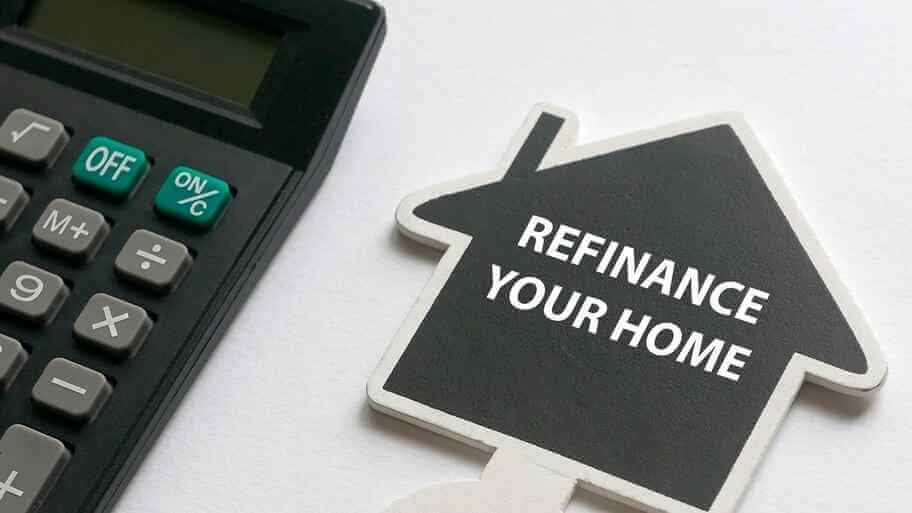Nobody likes to pay closing costs, but you’ll likely face some as part of your mortgage refinance, also known as mortgage refinance closing costs. You might want to refinance your home for various reasons, such as tapping into your cash equity, easing financial strain, or lowering your private mortgage insurance costs.
However, mortgage refinance fees could cost up to 5% of your principal. It’s not an enormous charge, but it’ll add up over time. It is important to know what closing costs to expect when refinancing.
What Are the Typical Mortgage Refinance Costs?
You probably remember the closing costs you paid when you first got your mortgage. Unfortunately, the closing costs on a typical mortgage refinance are very similar.
Though there are various expenses and fees that you will have to pay when you go through a mortgage refinance, you should compare several lenders to find the lowest rates. You could find a better deal if you do research and compare the market and to avoid mortgage refinance scams.
Here are some of the most common refinance closing costs:
1. Loan Origination Fee
You’ll have to pay an origination fee to your lender for processing and preparing your loan. The average origination fee is around 0.5 to 1 % of the loan amount. The origination fee essentially covers the customer service provided by the lender.
The lender will often stay in touch with you during and after the mortgage refinance process. In addition, the lender will secure your loan, arrange documents, offer verification of the information, and cross-reference any documents if your refinancing application applies to government-backed loans.
Nonetheless, you can negotiate all loan origination fees. Don’t be afraid to negotiate these costs with your lender because you might save a considerable sum. Can you ask to waive the origination fee on a mortgage? Yes, it’s worth a shot. Some lenders may be willing to negate the origination fee altogether.
2. The Appraisal Fee
You will get an appraisal before you buy your home for the following reasons:
-
-
-
-
- To ensure there are zero hidden problems
- To make sure you’re getting the best deal
- To prove the home’s value to the lender
-
-
-
You’ll also have to get an appraisal when you’re looking to refinance the home. Lenders will need to know that the property hasn’t changed significantly since you bought it. Appraisers will typically charge around $300 to $600 for an appraisal.
The mortgage lender might also need you to complete a pest and termite inspection. They could even require an engineer or property inspector to access the home’s condition. Again, these fees could set you back another $250 to $500.
3. Mortgage Insurance and Title Fees
When you purchase a home, you’ll receive a title. The title is proof that the seller has transferred the home to you. The document will prevent you from having any legal issues regarding ownership of the house.
You’ll need to buy new title insurance when you complete a mortgage refinance. However, many title insurance companies will offer huge discounts for returning customers who already bought policies with the original purchase of their home. Can you get title insurance credit on a refinance? It’s possible if you purchased the policy less than three years ago.
You will also have to pay for mortgage insurance if you have a government-backed mortgage such as an FHA or VA loan. Typically, if you’ve put down a deposit that’s 20% of the loan’s value, you’ll need to pay private mortgage insurance.
This insurance will protect the lender in case of financial default or any other issues that prevent you from repaying the mortgage. The lender will often offer their own insurance, with fees between 0.55 and 2.25%.
4. VA Funding Fee
The Veterans Association has two refinance products — the VA Cash-Out refinance and the IRRRL. However, the funding for these two VA refinance types differs due to their different objectives. The IRRRL looks to switch VA homeowners into a fixed-rate or adjustable-rate VA loan. In contrast, the Cash-Out refinance option allows veterans to refinance and take cash from the equity of the loan.
If you’re refinancing a VA loan, you will have to pay a percentage of the loan to the Department of Veteran Affairs. The amount that you pay depends on the type of refinancing you choose.
For example, if it’s your first VA loan, the typical funding fee is around 2.3%. That can rise to 3.6% for subsequent loans. The standard funding fee for the VA IRRRL is 0.5%, regardless of prior usage or history.
Various people are exempt from the VA funding fee, including:
-
-
-
-
- Anyone receiving VA disability
- Surviving spouses that receive Dependency Indemnity Compensation
- Purpleheart recipients that are on active duty
-
-
-
Other Typical Closing Costs to Watch Out for
-
-
- Early repayment fees – It’s not uncommon for your lender to charge early repayment fees. However, if you can’t get out of this fee, you might want to reconsider a mortgage refinance. Although prepayment penalties don’t occur every day, they’re often applicable within the first three to five years of your mortgage. FHA loans and VA loans rarely include prepayment fees because they’re government-backed loans.
- Discount points – Discount points are interest payments on your mortgage’s total amount. Lenders sometimes charge points when you complete a mortgage refinance in order to make more profit. You should try to negotiate these fees with your lender. If you can’t avoid them, try to calculate how much they will cost you to see if refinancing is still worthwhile. You can use a mortgage discount points calculator to help you.
- Credit report fee – Lenders will need to ensure that your credit score hasn’t dropped since you got the loan. Lenders will need to conduct a new credit check, and they’ll likely charge a closing fee for it. Credit reports cost between $25 to $50.
- Higher loan balance – When you decide to roll in the closing costs, your loan’s total balance will increase. Although it might not be a considerable sum on the surface, it will add to your monthly repayments. So make sure you’re confident you can repay a higher loan balance if you choose to roll in your closing costs.
-
Final Thoughts
Facing closing costs can be frustrating for any borrower. You should ensure you can afford to cover all the closing costs. If not, you should consider whether a mortgage refinances is the best option for you.
Alternatively, you can get a no-closing-cost refinance. However, while these refinance options have no upfront fees, they often make up for it by rolling closing costs into your loan or charging higher rates.
When refinancing your home, make sure you negotiate with the lender, conduct thorough research, and understand the mortgage refinance costs. If you do all that, your mortgage refinance will be a seamless process.
Featured Image: Twenty20








